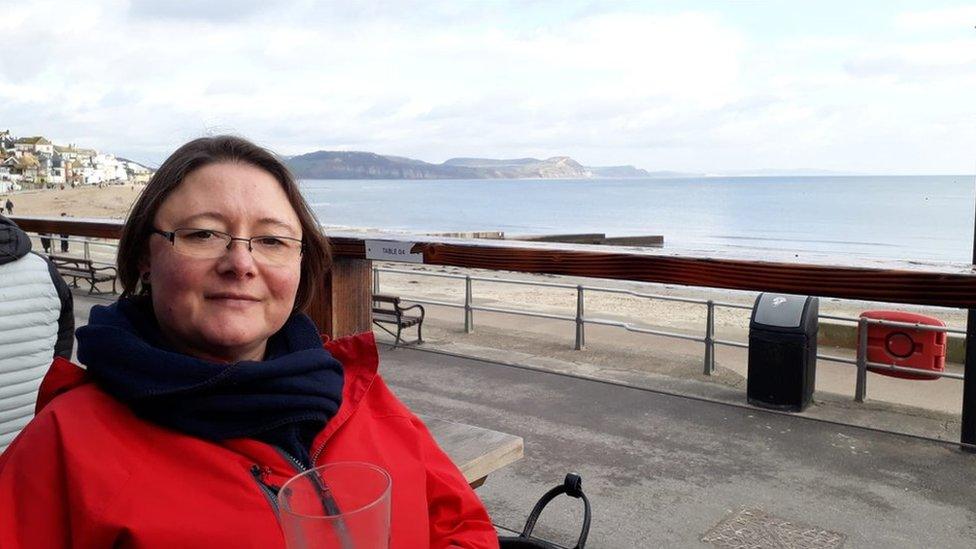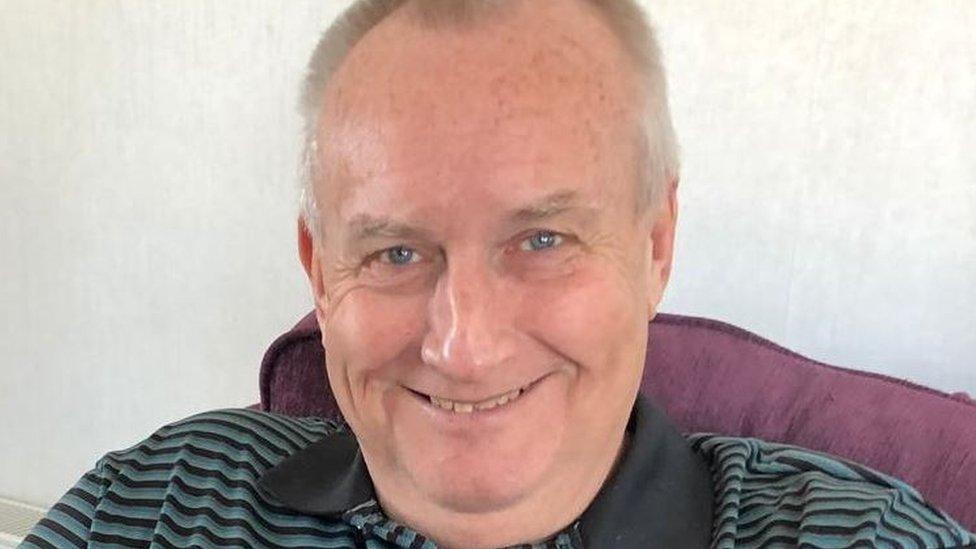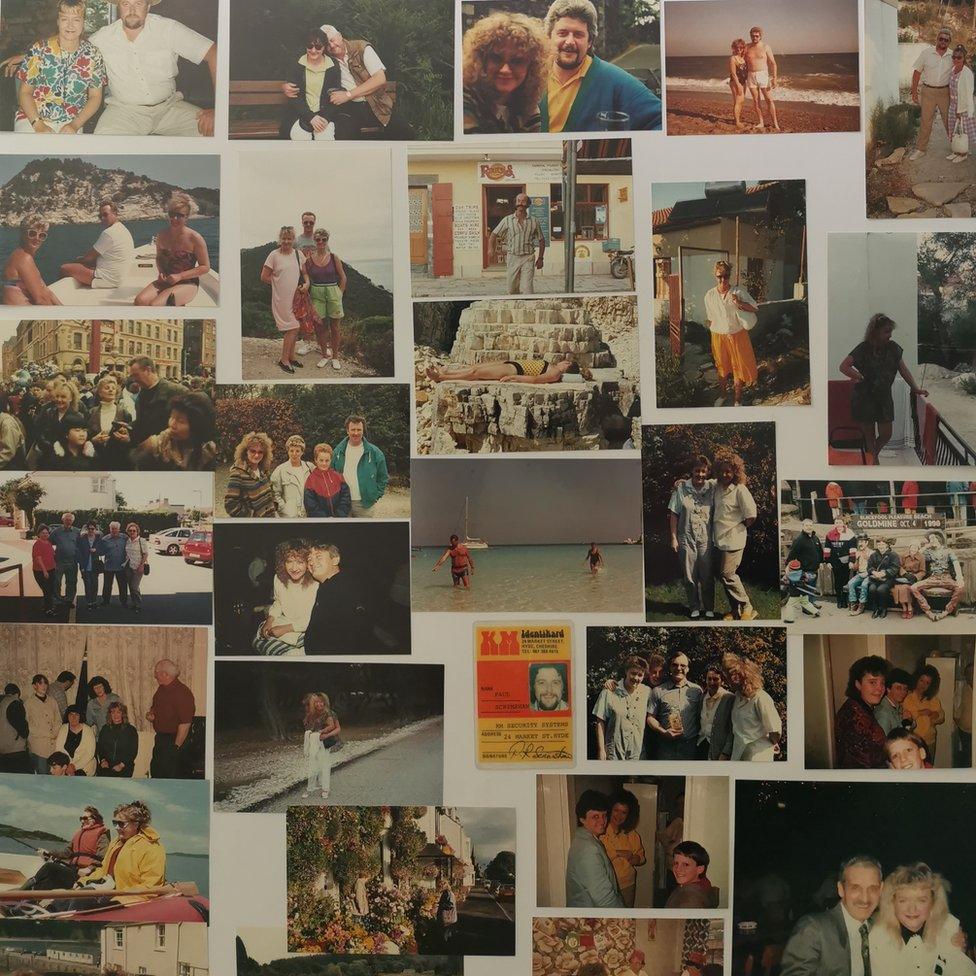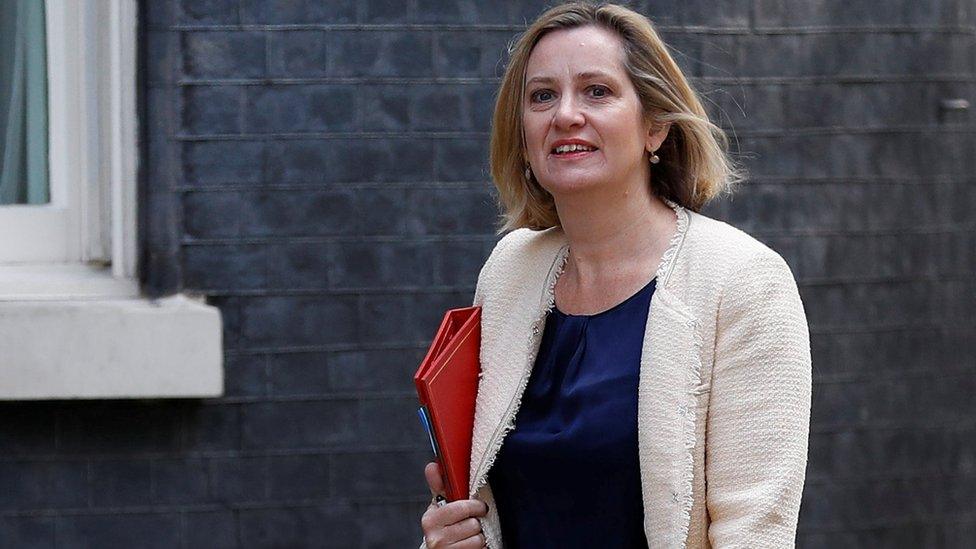Terminally ill benefits: 'My dad didn't know how long he had'
- Published

Emma Gwynn says the system is too complicated and insensitive to the needs of the dying
"It was incredibly distressing to tell my own father that, as he was going to die soon, we had to try our hardest to get him his benefits."
Emma Gwynn's father lived for just 12 weeks after being diagnosed with cancer in April 2013.
The government has announced it will review its benefits system for the terminally ill following a damning parliamentary report.
Emma welcomed the news and told the BBC: "Financial worries should not be added to a families' difficulties at such a distressing time."
Call for sensitivity
Currently, when a person's death is expected within six months they qualify for fast-tracked access to benefits.
But this six-month rule - which was introduced into law 30 years ago - was dubbed "outdated, arbitrary and not based on clinical reality" by the All-Party Parliamentary Group for Terminal Illness.
Emma, who is from Somerset, said: "The higher rate attendance allowance took a few weeks to be assessed. All the while my father was deteriorating. The extra allowance helped my mother pay for additional support at home.
"My father was cared for in his own home, rather than in hospital, which saved the NHS thousands of pounds. The attendance allowance helped support our family to do this.
"My dad didn't know how long he had. The rest of the family did, but if someone is diagnosed with a terminal illness you don't want to necessarily put a timescale on this and suggest the clock is ticking."
She called for the system to become more sensitive to the circumstances of the individuals with whom it was dealing.
Repay money
Steve Lenehan, from Maidenhead, agrees.
His wife Claire died in 2007 at the age of 44 from pneumonia and heart failure.
She had been diagnosed with stage four breast cancer four years earlier, shortly after their third child was born.
Her benefits application was rejected at the time, but was granted when she reapplied in 2007, following a conversation with a Macmillan palliative care nurse.
Steve said it was only then that they realised the doctor expected Claire to die within the next six months. She survived a few more weeks.
"My wife received the terminally ill benefits for the last few weeks of her life. However, because she died on a Tuesday - two days before her benefit was usually paid - I was contacted by the agency to say that she had been overpaid by two days and they wanted the money repaid.
"It was only a few pounds, but it felt very stingy."

Graham Driscoll's application for benefits is somewhere in the system
Graham Driscoll, from Nottingham, was diagnosed with stage four kidney cancer in December 2018 and has been told by doctors he has between two and three years left to live.
But the retired police officer is still waiting to find out if his application for benefits, which are intended to help the terminally ill, has any chance of being approved.
"The benefit money can help people just cope with day-to-day life. But it's hard enough to plan for the time you have left when you don't even know if the government's received your application for assistance."
He says that he sought help from Maggie's Nottingham - an organisation based at Nottingham City Hospital.
He said: "I had a lot of help from a staff member there to fill out the 52-page form and get the appropriate information to claim attendance allowance. It's a nightmare form to fill out, but my consultant said they could not fill out the six-month form, as they believe I have more than six months left to live.
"Unfortunately we don't know if the government has received it. We've asked but nobody has been able to confirm that it's reached there within the one-month deadline.
"I appreciate some people may think this is a minor hiccup, but it all adds to a time delay - and time is very precious to me."
The Department for Work and Pensions (DWP) said it could not comment on individual cases without personal details and consent from the families involved.
But, earlier on Thursday, referring to the benefits review, Work and Pensions Secretary Amber Rudd said: "I hope that this comprehensive evaluation of how we treat those with severe conditions and terminal illnesses will help ensure these vulnerable people get the support they need from our benefits system."

Paul Scimshaw is grateful for the time he had with his wife and said his experience applying for benefits was not at all complicated
However, Paul Scimshaw, from Sale, says that sometimes the system does work.
"My wife Joan died at the end of April this year at the age of 64.
"We had been together since we were 18 but we didn't get married until January this year.
"She had cancer for 21 years and had been treated by the Christie NHS Trust in Manchester all that time. She was eventually diagnosed as terminally ill in December 2018.
"The DWP don't always get it wrong as she was given maximum benefits within a couple of weeks with no assessment. We are forever going to be grateful for the extra 21 years we had with her and how she was treated.
"She died at home where she wished to be."
- Published11 July 2019
